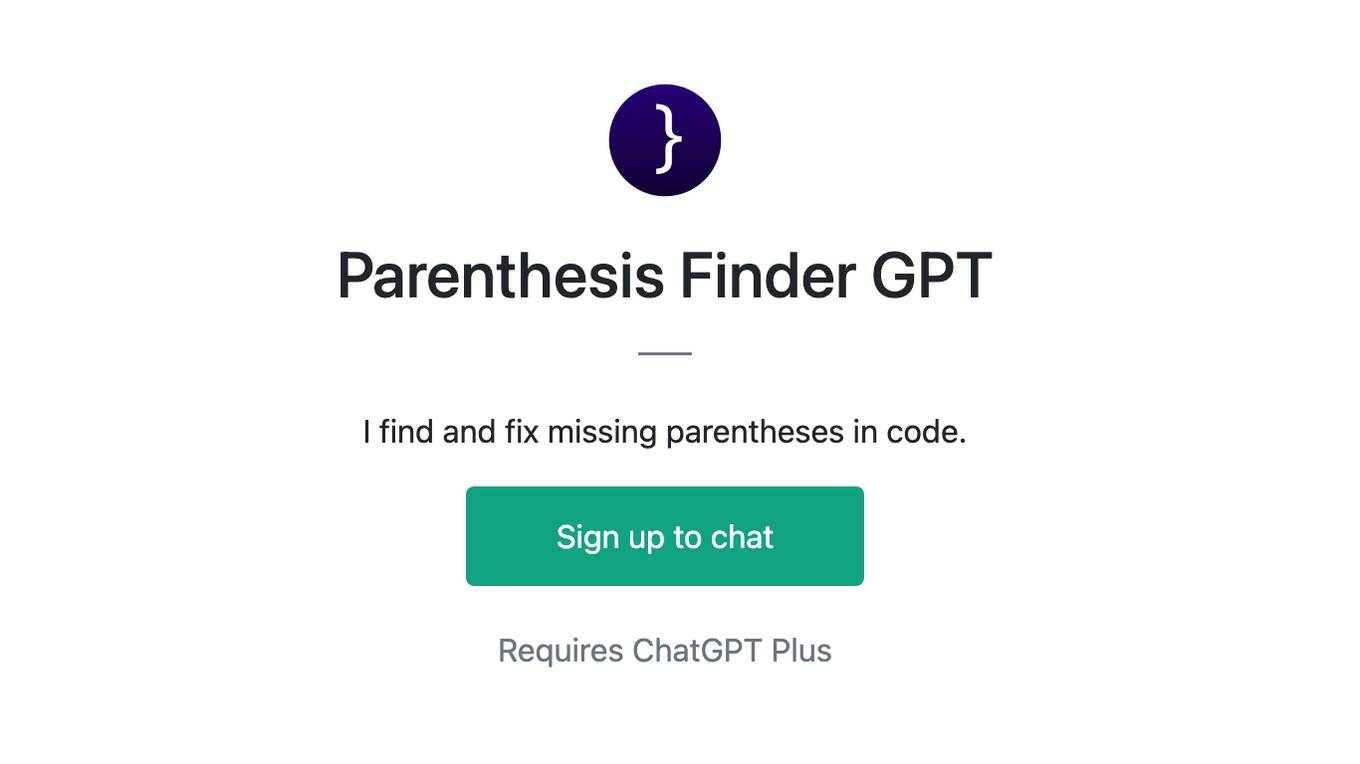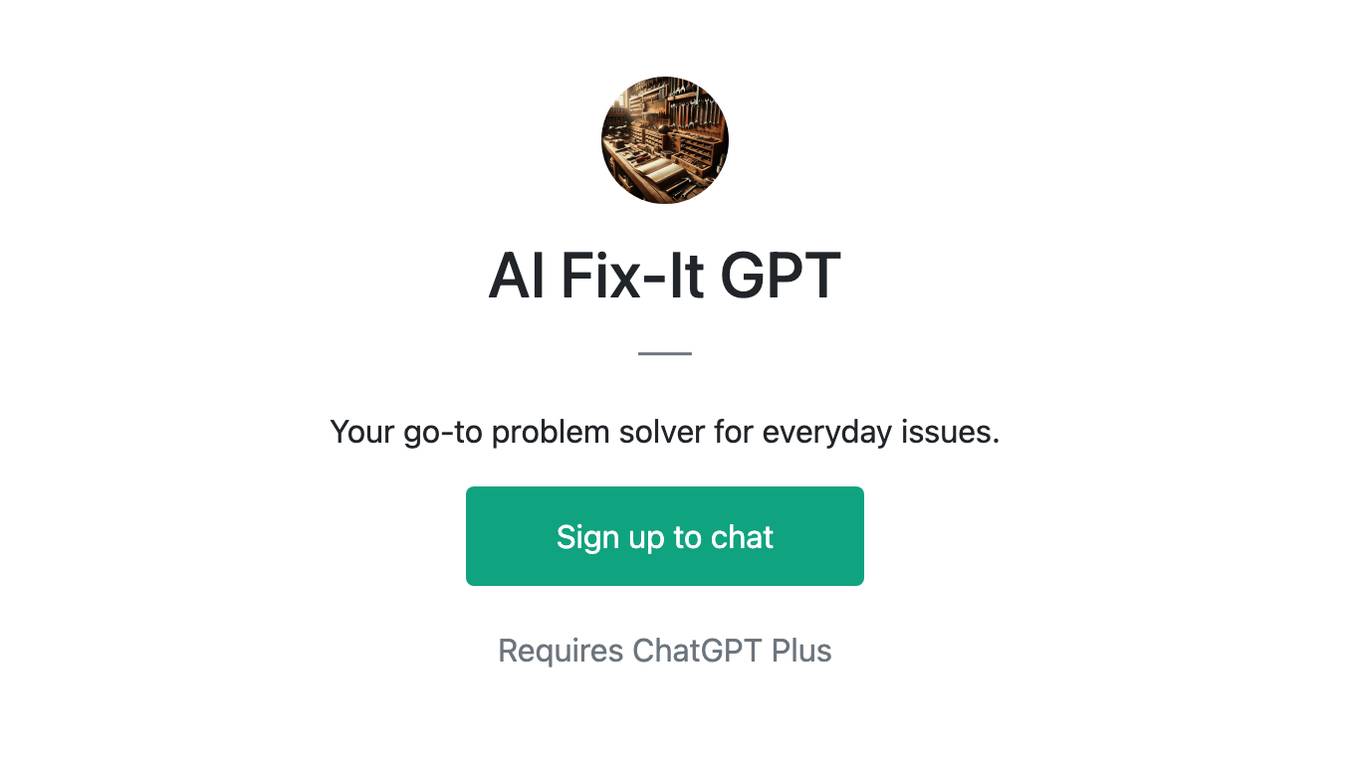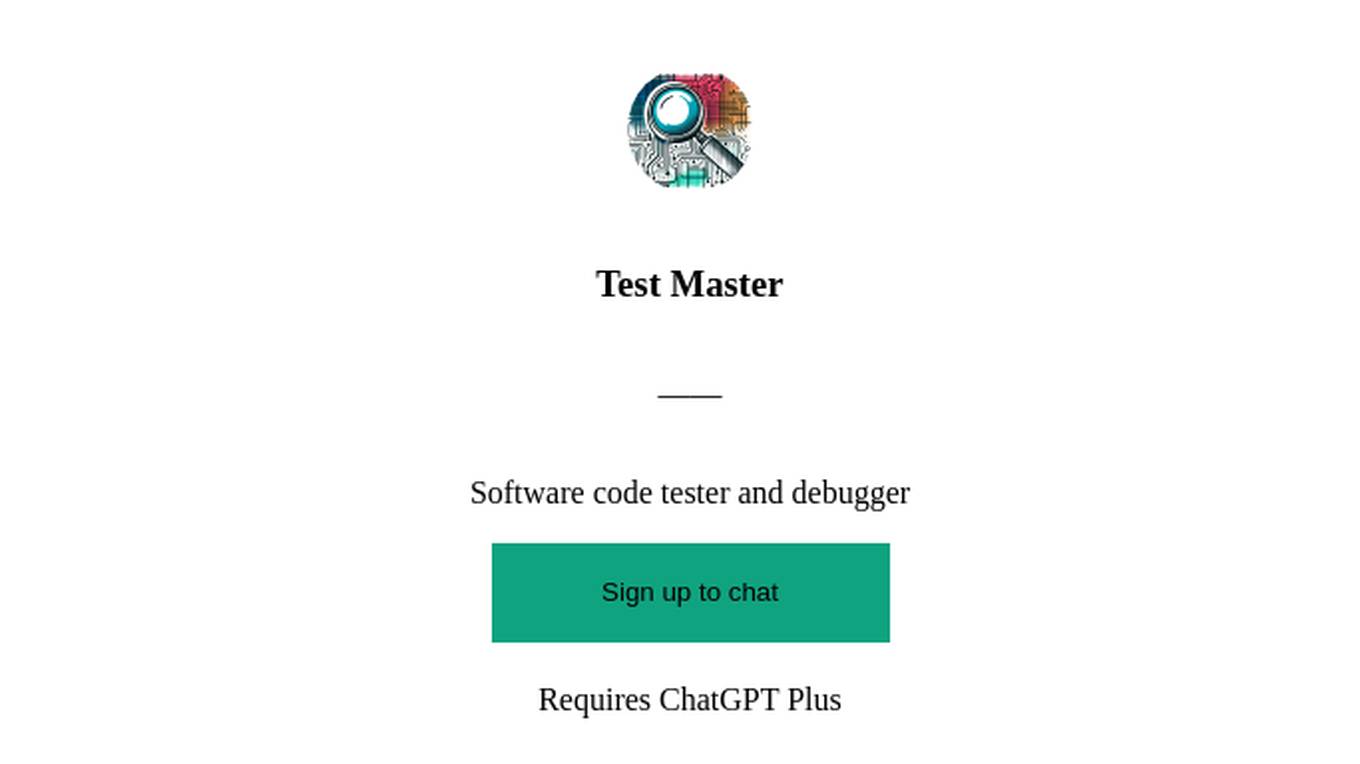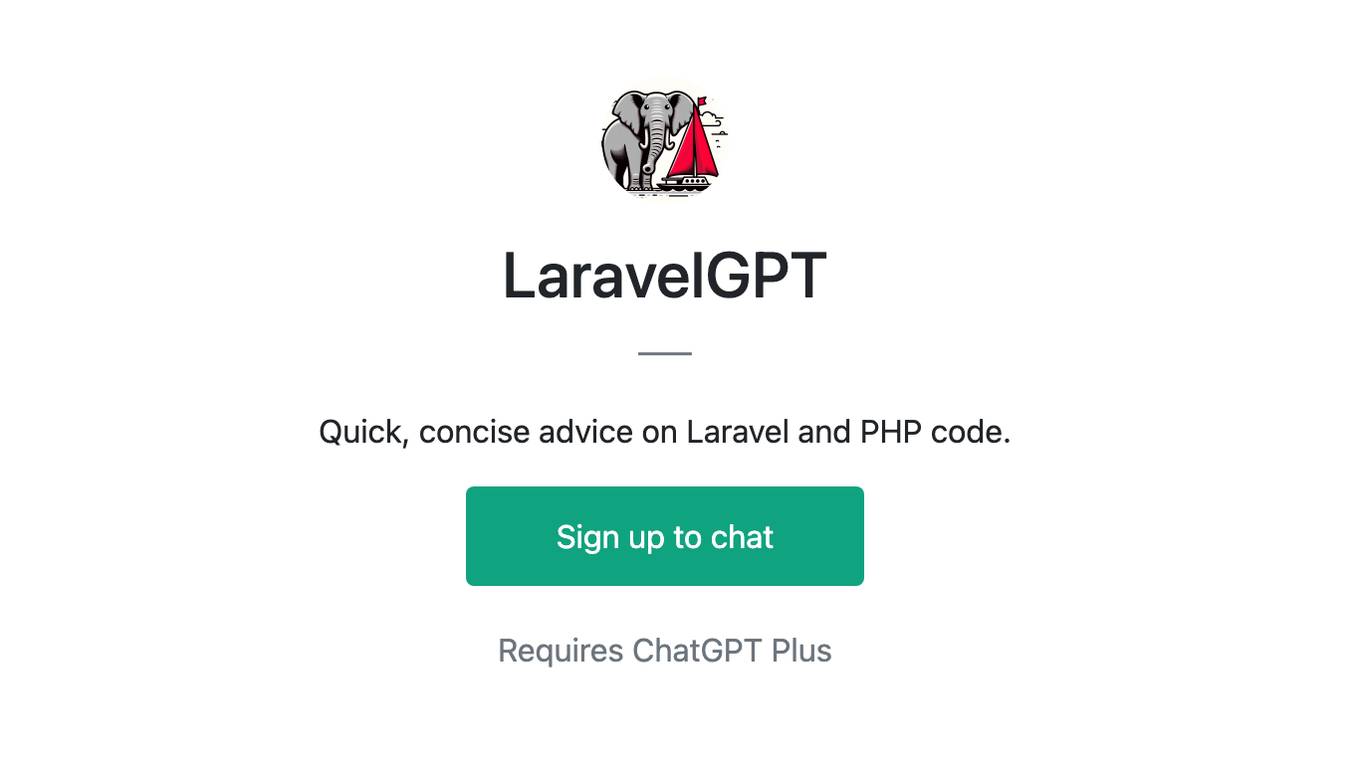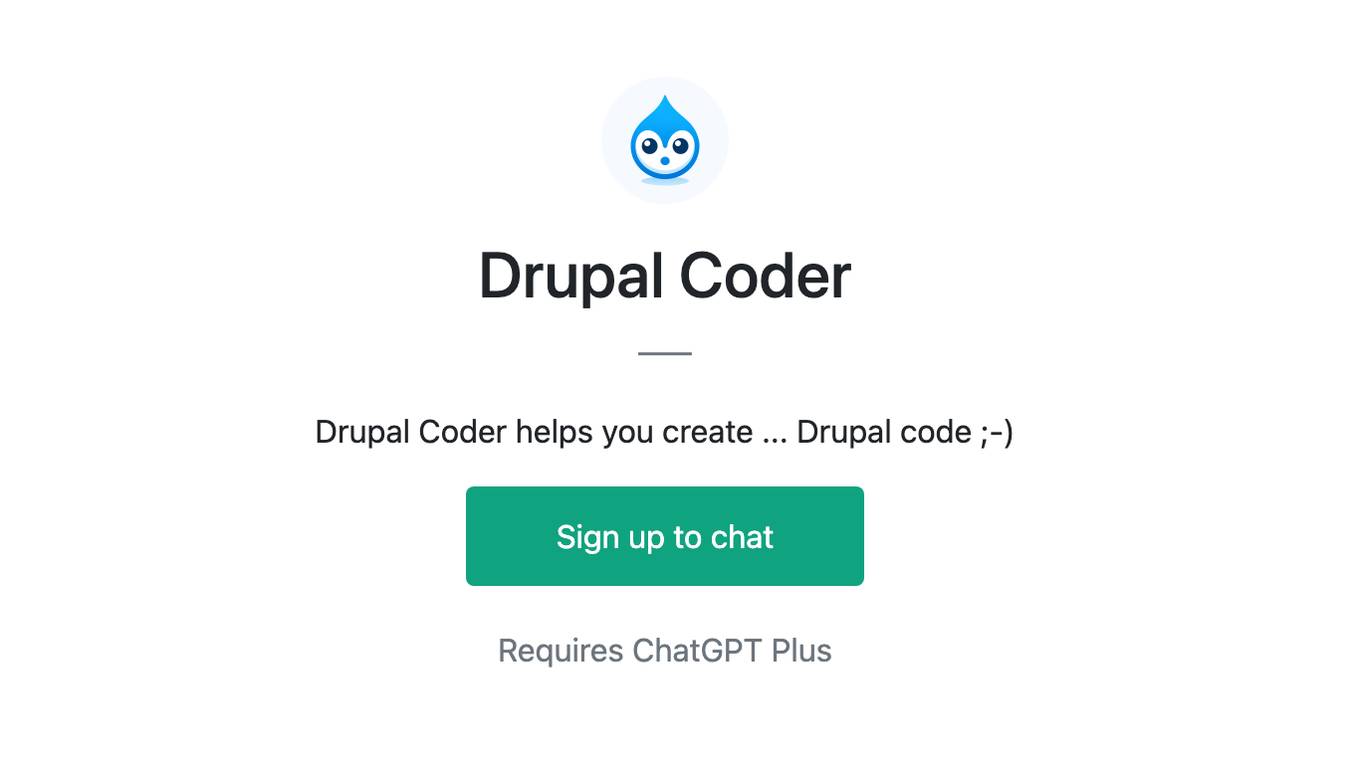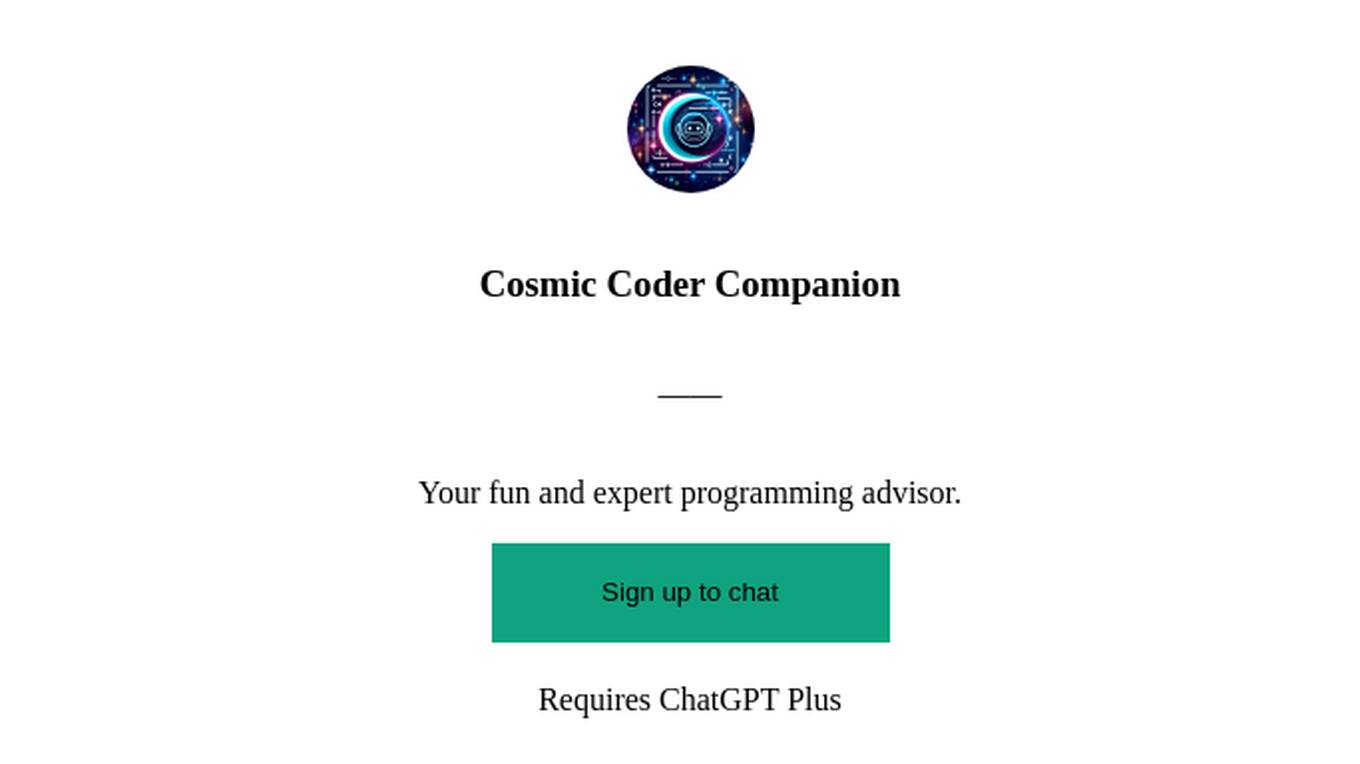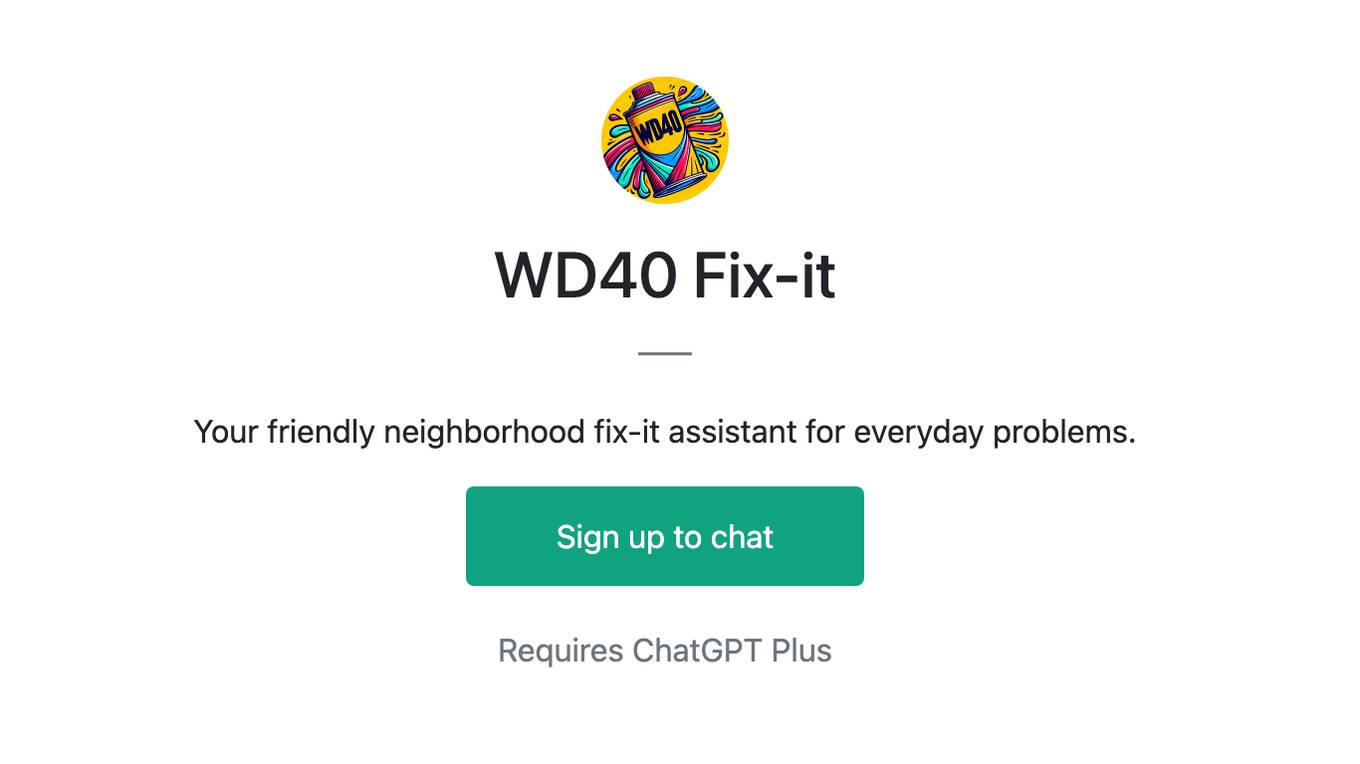Best AI tools for< Fix Code Vulnerabilities >
20 - AI tool Sites

Semgrep
Semgrep is an AI-powered application designed for static analysis and security testing of code. It helps developers find and fix issues in their code, detect vulnerabilities in the software supply chain, and identify hardcoded secrets. Semgrep offers features such as AI-powered noise filtering, dataflow analysis, and tailored remediation guidance. It is known for its speed, transparency, and extensibility, making it a valuable tool for AppSec teams of all sizes.
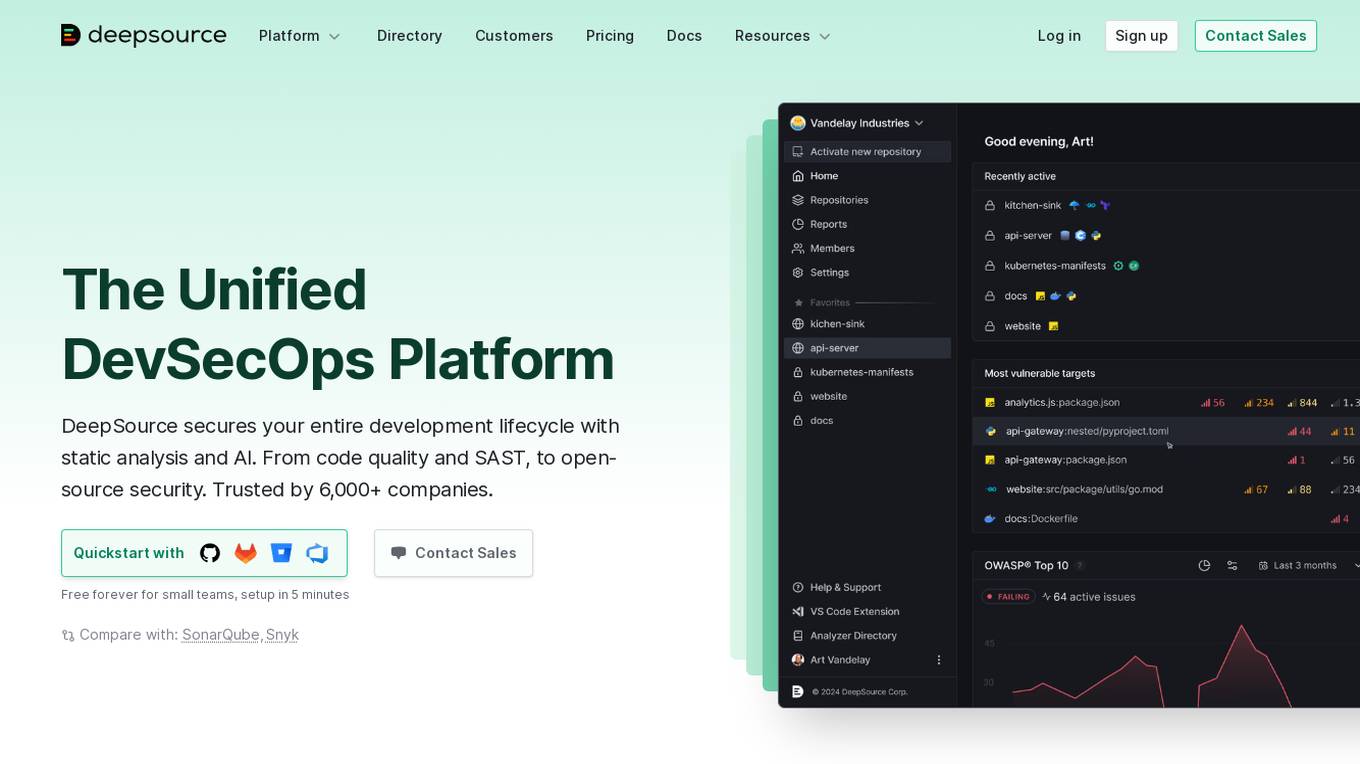
DeepSource
DeepSource is a Unified DevSecOps Platform that secures the entire development lifecycle with static analysis and AI. It offers code quality and SAST, open-source security, and is trusted by over 6,000 companies. The platform helps in finding and fixing security vulnerabilities before code is merged, with a low false-positive rate and customizable security gates for pull requests. DeepSource is built for modern software development, providing features like Autofix™ AI, code coverage, and integrations with popular tools like Jira and GitHub Issues. It offers detailed reports, issue suppression, and metric thresholds to ensure clean and secure code shipping.

VibeSafe
VibeSafe is an AI-powered security scanner designed specifically for vibe-coded apps. It conducts over 55 security checks in just 60 seconds to identify vulnerabilities in AI-generated code patterns. The tool provides a detailed report card with prioritized findings and step-by-step fix instructions. VibeSafe aims to address common security issues such as exposed secrets, authentication gaps, security headers, rate limiting, CORS, database exposure, and payment security. It offers Pro features for advanced users, including AI-generated fix codes, unlimited scans, and GitHub repo scanning.
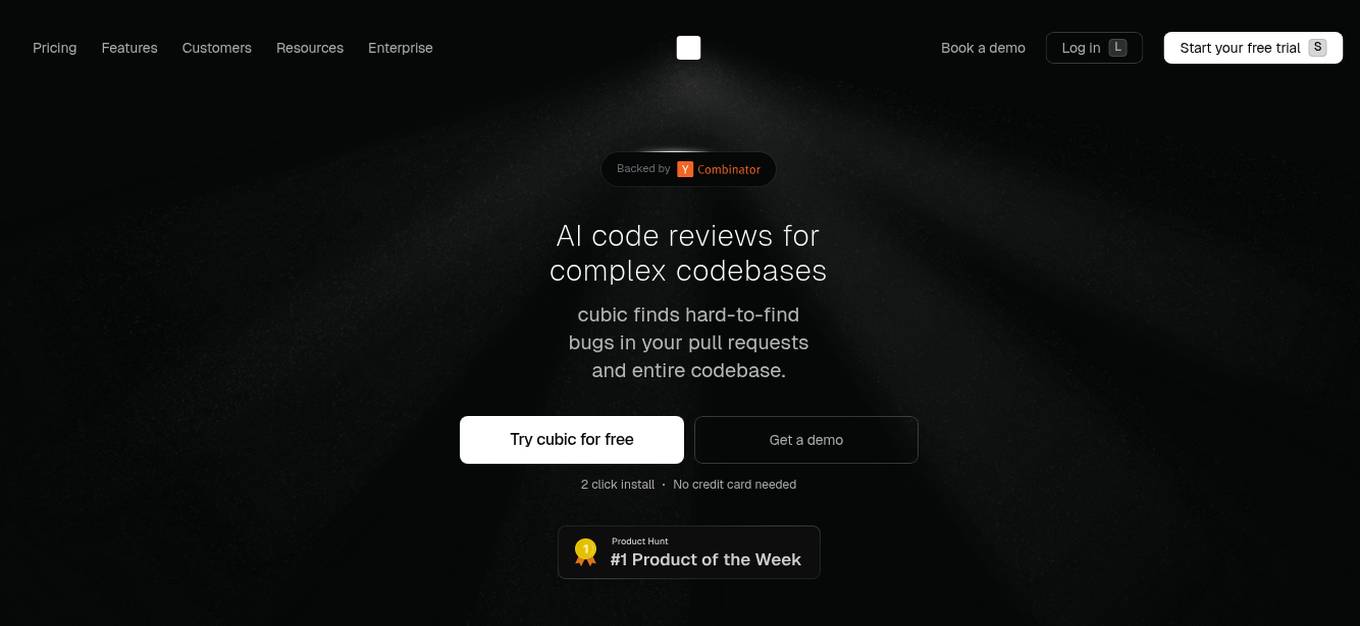
cubic
cubic is an AI-native code-review platform that leverages artificial intelligence to conduct code reviews for complex codebases. It helps teams identify hard-to-find bugs in pull requests and the entire codebase, providing context-aware feedback and summaries to enhance the review process. cubic continuously scans codebases for bugs and vulnerabilities, triages issues, enforces coding standards, and learns from team feedback to improve over time. The platform offers features like automatic PR descriptions, one-click issue fixes, intelligent diff ordering, and visualizing high-level changes. With a focus on security and privacy, cubic ensures that code remains secure and private by not storing or training AI on the code. It supports various programming languages and offers different pricing plans tailored to different team sizes and needs.

Pixeebot
Pixeebot is an automated product security engineer that helps developers fix vulnerabilities, harden code, squash bugs, and improve code quality. It integrates with your existing workflow and can be used locally via CLI or through the GitHub app. Pixeebot is powered by the open source Codemodder framework, which allows you to build your own custom codemods.

VIDOC
VIDOC is an AI-powered security engineer that automates code review and penetration testing. It continuously scans and reviews code to detect and fix security issues, helping developers deliver secure software faster. VIDOC is easy to use, requiring only two lines of code to be added to a GitHub Actions workflow. It then takes care of the rest, providing developers with a tailored code solution to fix any issues found.
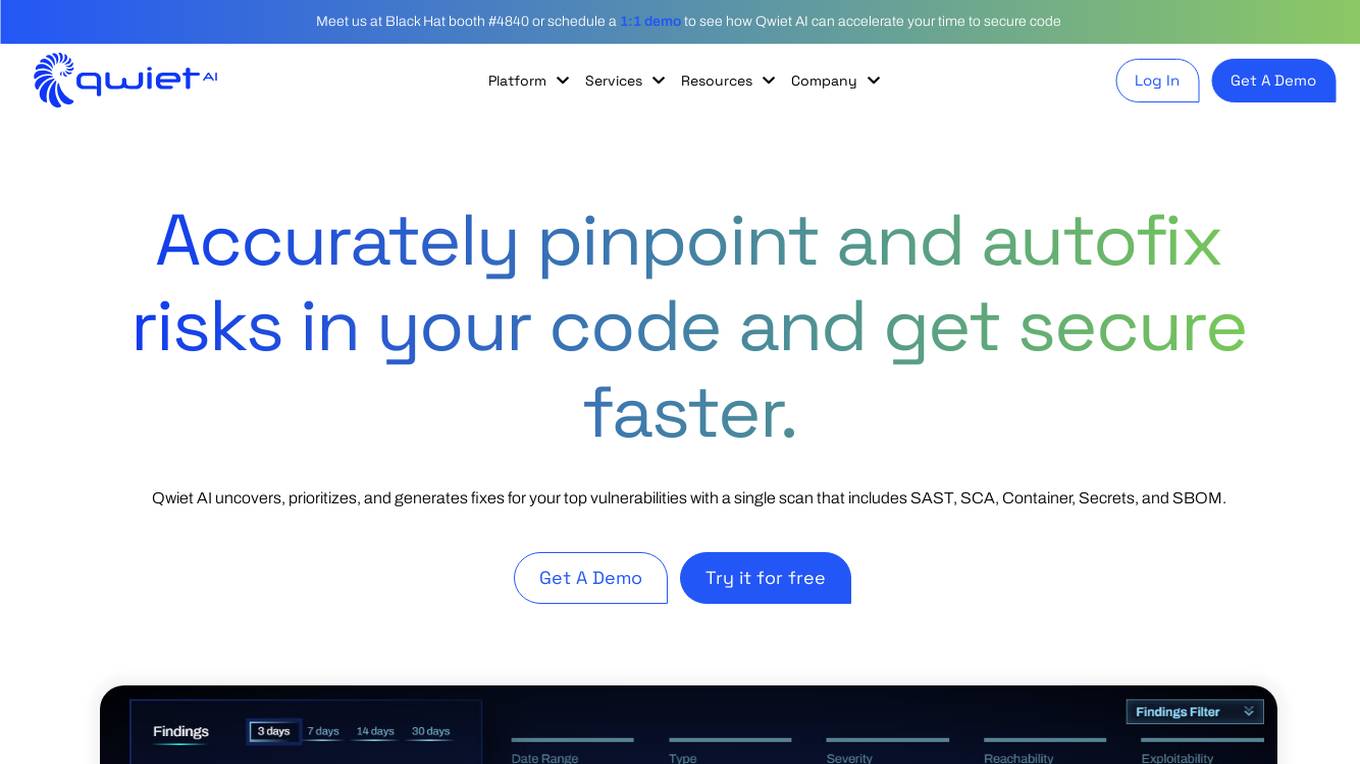
Qwiet AI
Qwiet AI is a code vulnerability detection platform that accelerates secure coding by uncovering, prioritizing, and generating fixes for top vulnerabilities with a single scan. It offers features such as AI-enhanced SAST, contextual SCA, AI AutoFix, Container Security, SBOM, and Secrets detection. Qwiet AI helps InfoSec teams in companies to accurately pinpoint and autofix risks in their code, reducing false positives and remediation time. The platform provides a unified vulnerability dashboard, prioritizes risks, and offers tailored fix suggestions based on the full context of the code.

Lacework
Lacework is a cloud security platform that provides comprehensive security solutions for DevOps, Containers, and Cloud Environments. It offers features such as Code Security, Workload Protection, Identities and Entitlements management, Posture Management, Kubernetes Security, Data Posture Management, Infrastructure as Code security, Software Composition Analysis, Application Security Testing, Edge Security, and Platform Overview. Lacework empowers users to secure their entire cloud infrastructure, prioritize risks, protect workloads, and stay compliant by leveraging AI-driven technologies and behavior-based threat detection. The platform helps automate compliance reporting, fix vulnerabilities, and reduce alerts, ultimately enhancing cloud security and operational efficiency.
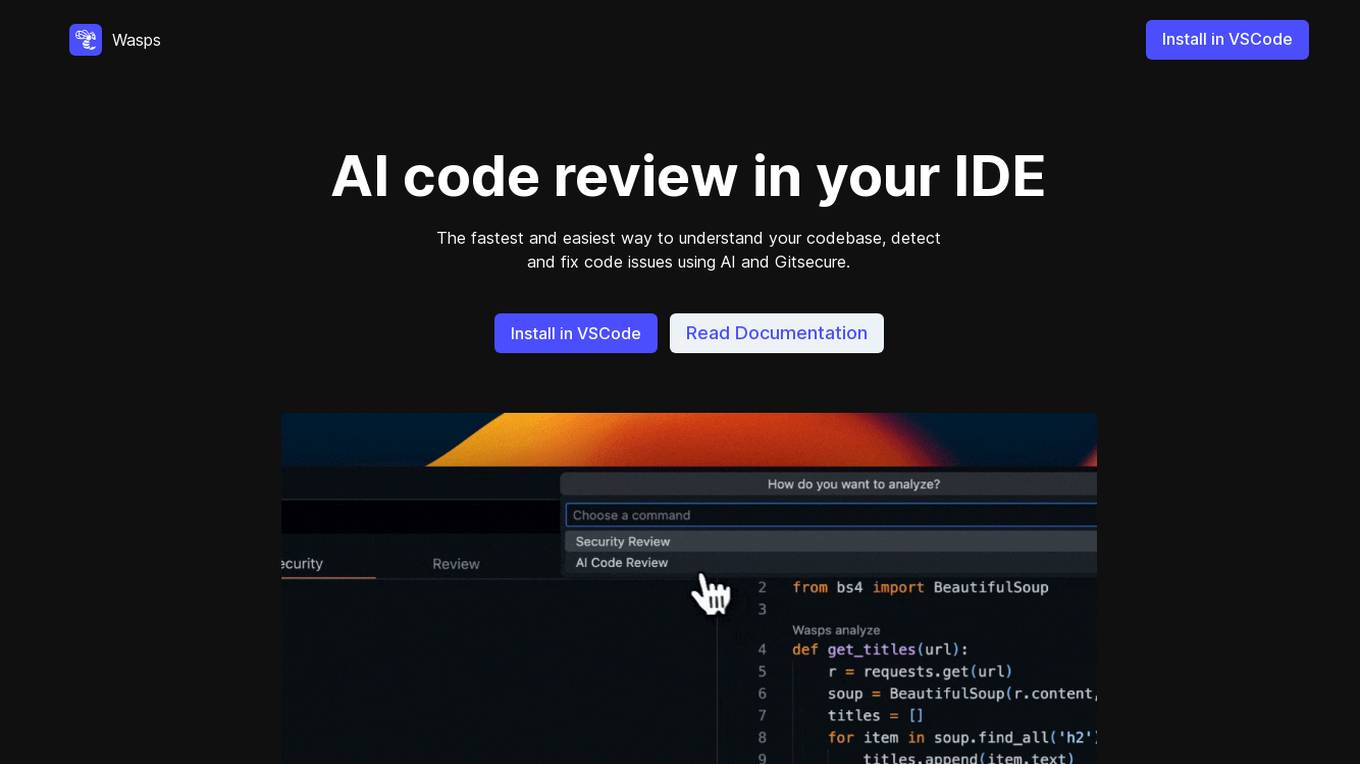
Wasps
Wasps is an AI code review tool that integrates seamlessly into VSCode, providing developers with a fast and efficient way to understand their codebase, detect and fix code issues using AI and Gitsecure. With Wasps, developers can identify and fix buggy & vulnerable code in minutes, receive clear and actionable feedback driven by deep analysis, and get recommendations for potential issues and improvements within their codebase. The tool allows developers to keep coding as usual while Wasps analyzes their code for them, making it easier to maintain code quality and keep bugs out of their code.
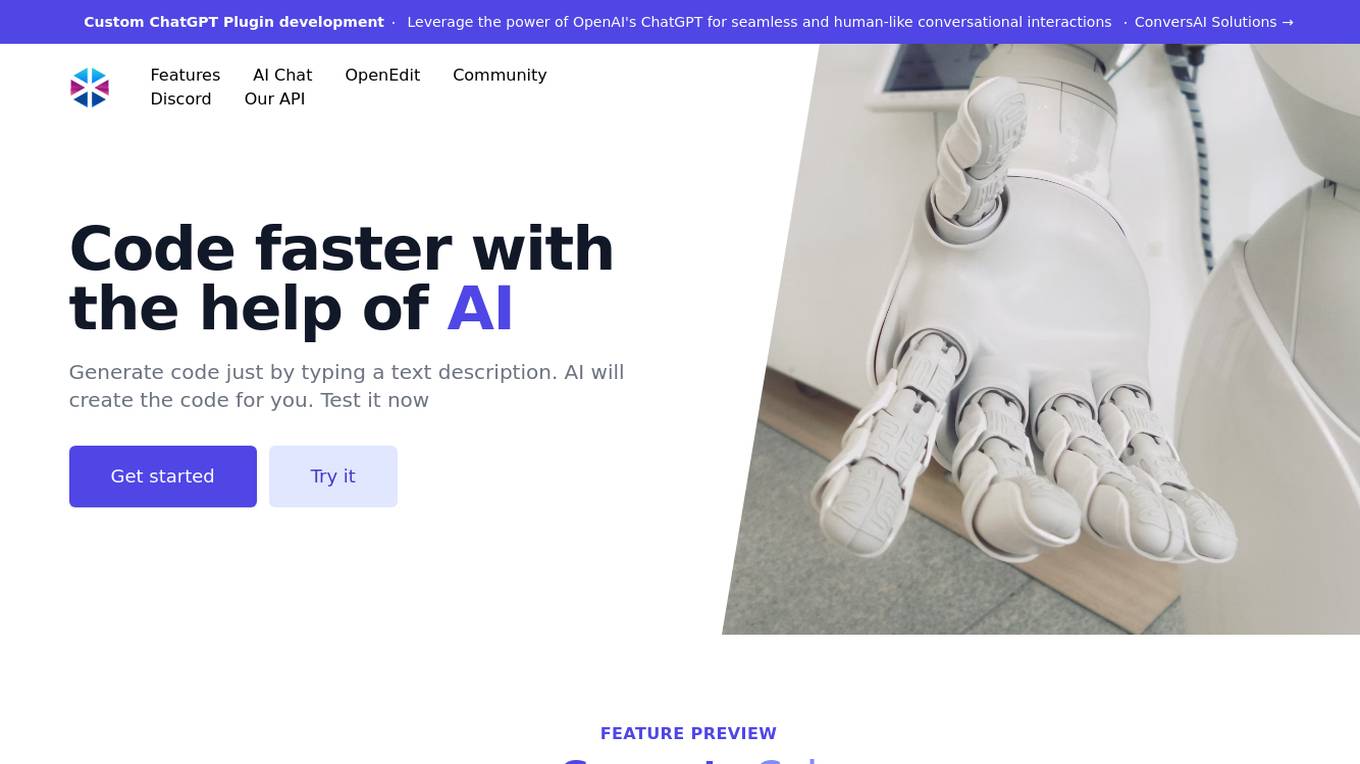
Programming Helper
Programming Helper is a tool that helps you code faster with the help of AI. It can generate code, test code, and explain code. It also has a wide range of other features, such as a function from description, text description to SQL command, and code to explanation. Programming Helper is a valuable tool for any programmer, regardless of their skill level.
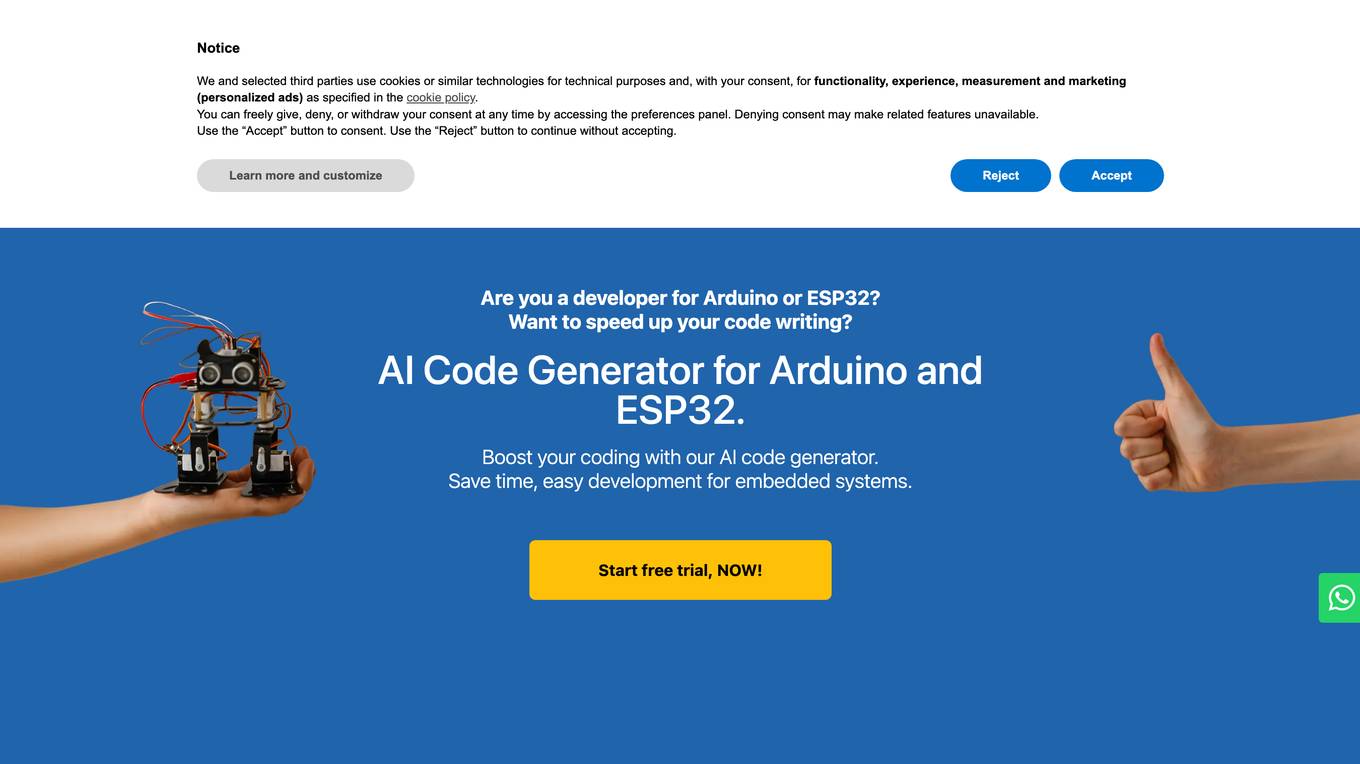
PLEASEDONTCODE
PLEASEDONTCODE is an AI Code Generator designed for Arduino and ESP32 embedded systems. It simplifies coding processes, automates code generation, and helps users overcome common obstacles in software development for electronic boards. The platform offers a guided interface with six steps to create error-free, syntactically correct, and logically sound code, enabling users to focus on their projects rather than troubleshooting.
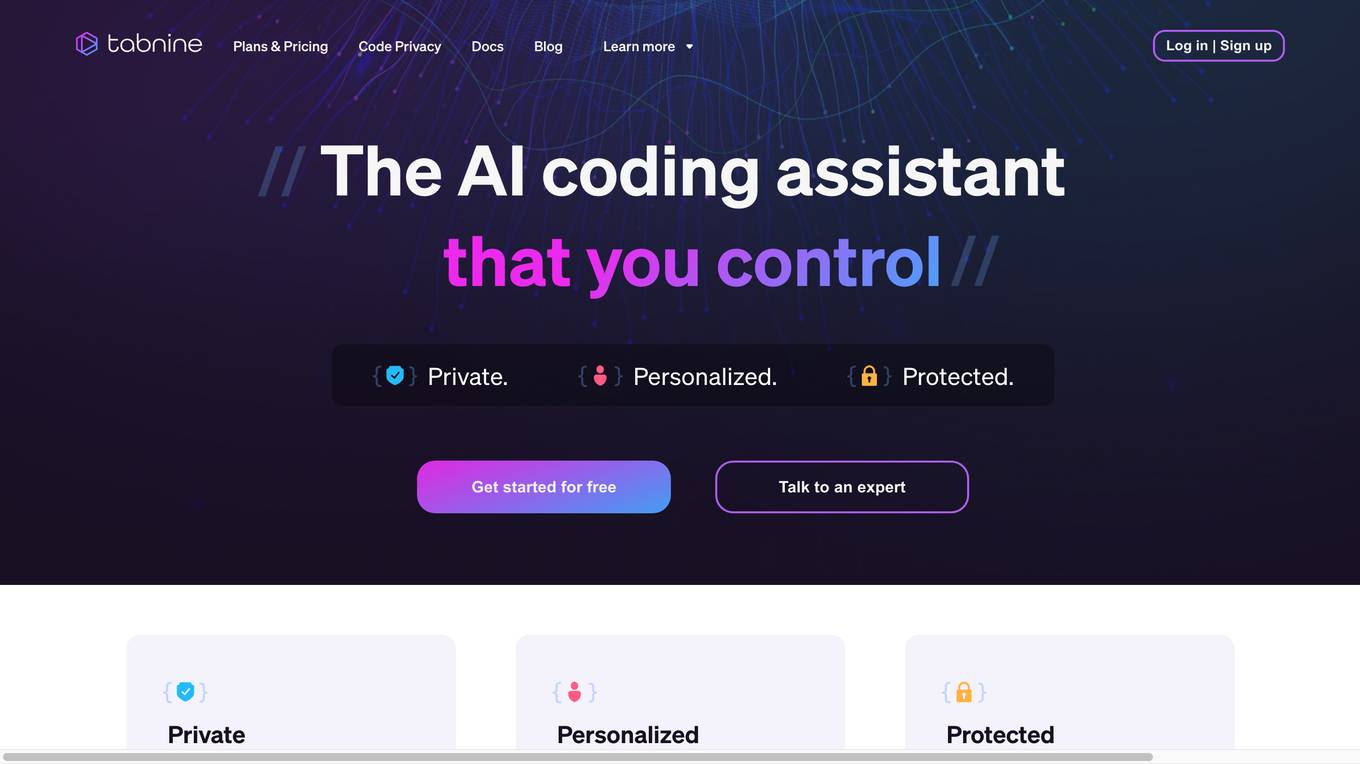
Tabnine
Tabnine is an AI code assistant that accelerates and simplifies software development while keeping your code private, secure, and compliant. It offers industry-leading AI code assistance, personalized to fit your team's needs, ensuring total code privacy, and providing complete protection from intellectual property issues. Tabnine's AI agents cover various aspects of the software development lifecycle, from code generation and explanations to testing, documentation, and bug fixes.

Whybug
Whybug is an AI tool designed to help developers debug their code by providing explanations for errors. By utilizing a large language model trained on data from StackExchange and other sources, Whybug can predict the causes of errors and suggest fixes. Users can simply paste an error message and receive detailed explanations on how to resolve the issue. The tool aims to streamline the debugging process and improve code quality.

AskingTips
AskingTips is an AI-based platform offering a wide range of tools and generators for various purposes such as social media ad copy, SEO optimization, web development, blogging, writing, and technical support. Powered by advanced AI models like chatgpt 3.5 and chatgpt 4, along with premium APIs, AskingTips aims to streamline and enhance various aspects of content creation and technical tasks for users. The platform enables users to create ad copies, generate code, optimize SEO content, write blogs, and receive technical support efficiently and effectively.
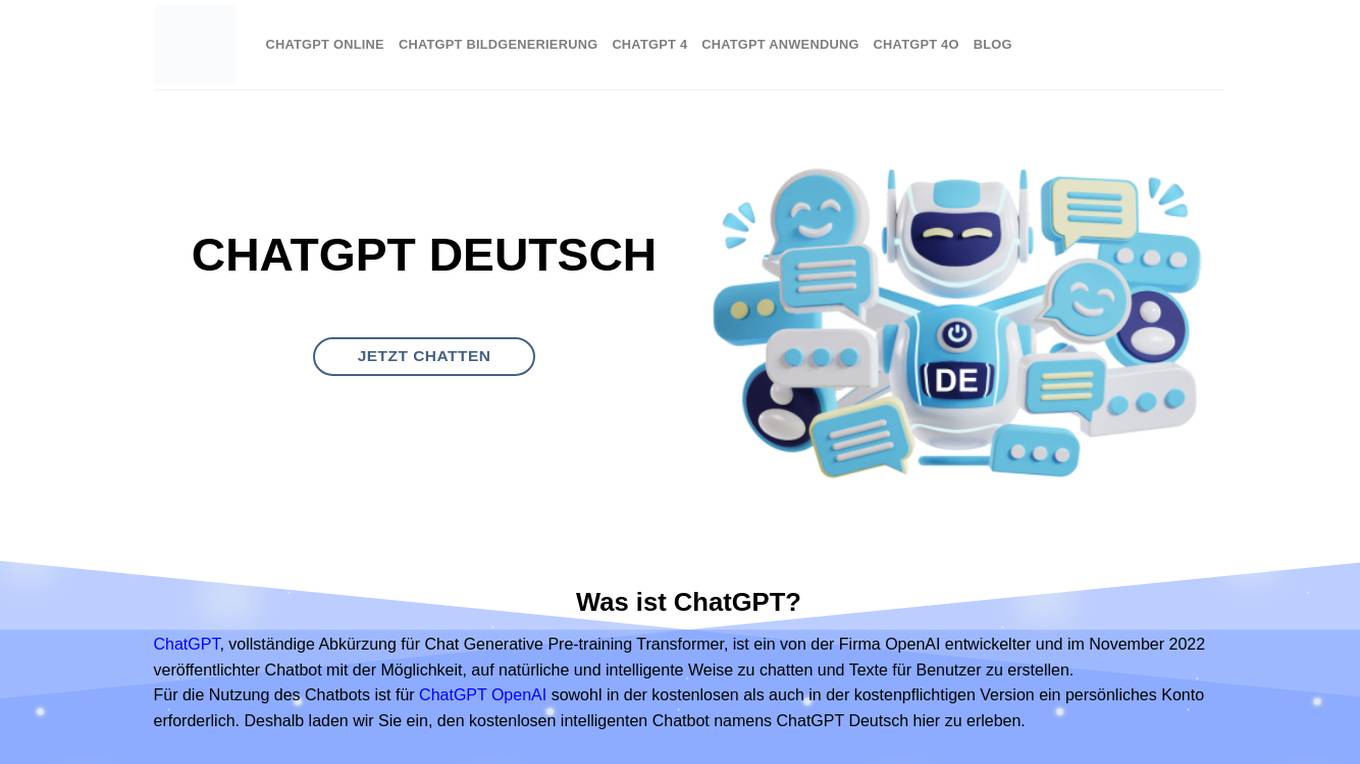
ChatGPT Deutsch
ChatGPT Deutsch is an intelligent chatbot tool developed by OpenAI that allows users to interact online with the large GPT language model through the OpenAI API function, enabling them to create text in AI language. The tool is equipped with many features to perform various tasks such as language translation, content creation, and programming support in just a few seconds. ChatGPT Deutsch offers unlimited conversation possibilities based on vast and reliable data sources from various information channels. Users of GPT Deutsch can start asking questions immediately without incurring any fees or complicated account registration.
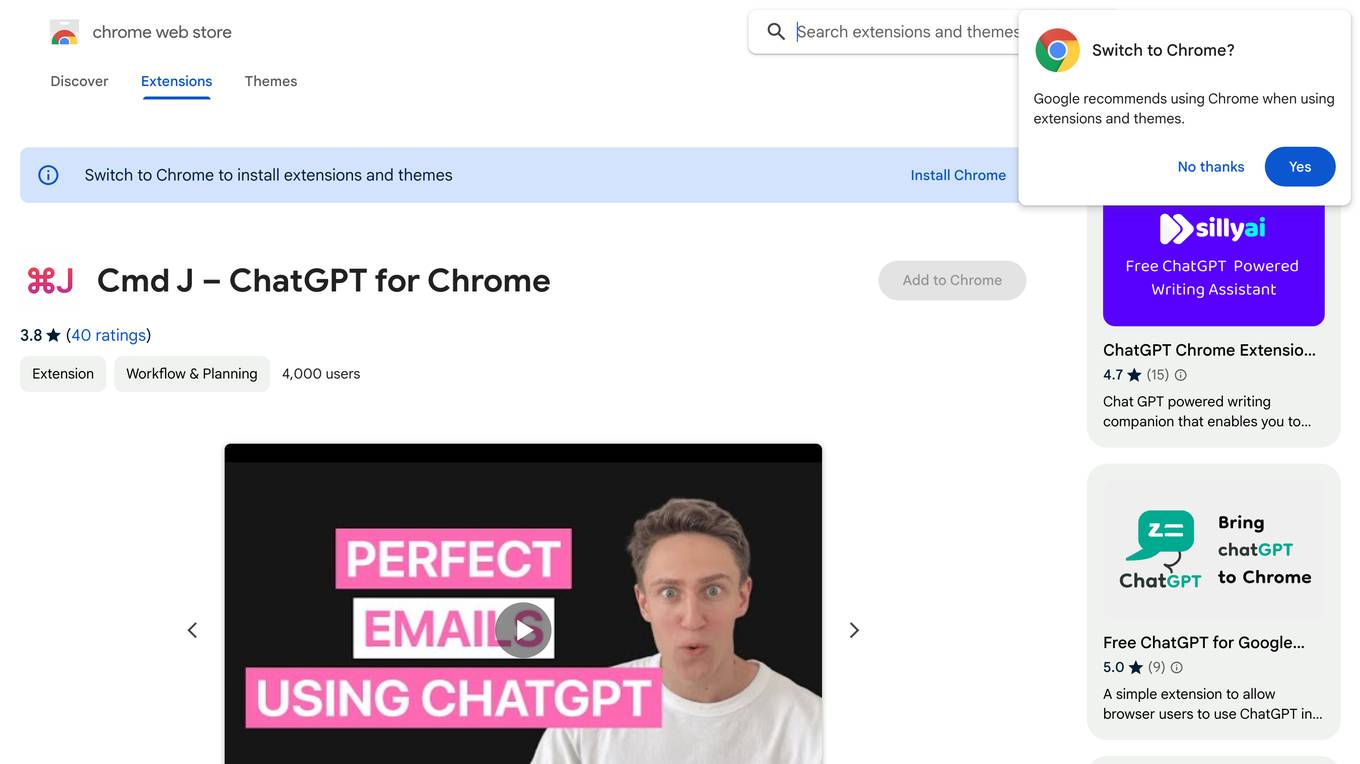
Cmd J – ChatGPT for Chrome
Cmd J – ChatGPT for Chrome is a Chrome extension that allows users to use ChatGPT on any tab without having to copy and paste. It offers a variety of features to help users improve their writing, generate blog posts, crush coding issues, boost their social engagement, and fix code bugs faster. The extension is easy to use and can be accessed with a simple keyboard shortcut.

Wand
Wand is an AI-powered tool that helps you find and fix errors in your code. It uses machine learning to identify potential problems and provides suggestions for how to resolve them. Wand can be used with a variety of programming languages, including Python, Java, JavaScript, and C++.

Frugal
Frugal is an intelligent application cost engineering platform that optimizes code to reduce cloud costs automatically. It is the first AI-powered cost optimization platform built for engineers, empowering them to find and fix inefficiencies in code that drain cloud budgets. The platform aims to reinvent cost engineering by enabling developers to reduce application costs and improve cloud efficiency through automated identification and resolution of wasteful practices.
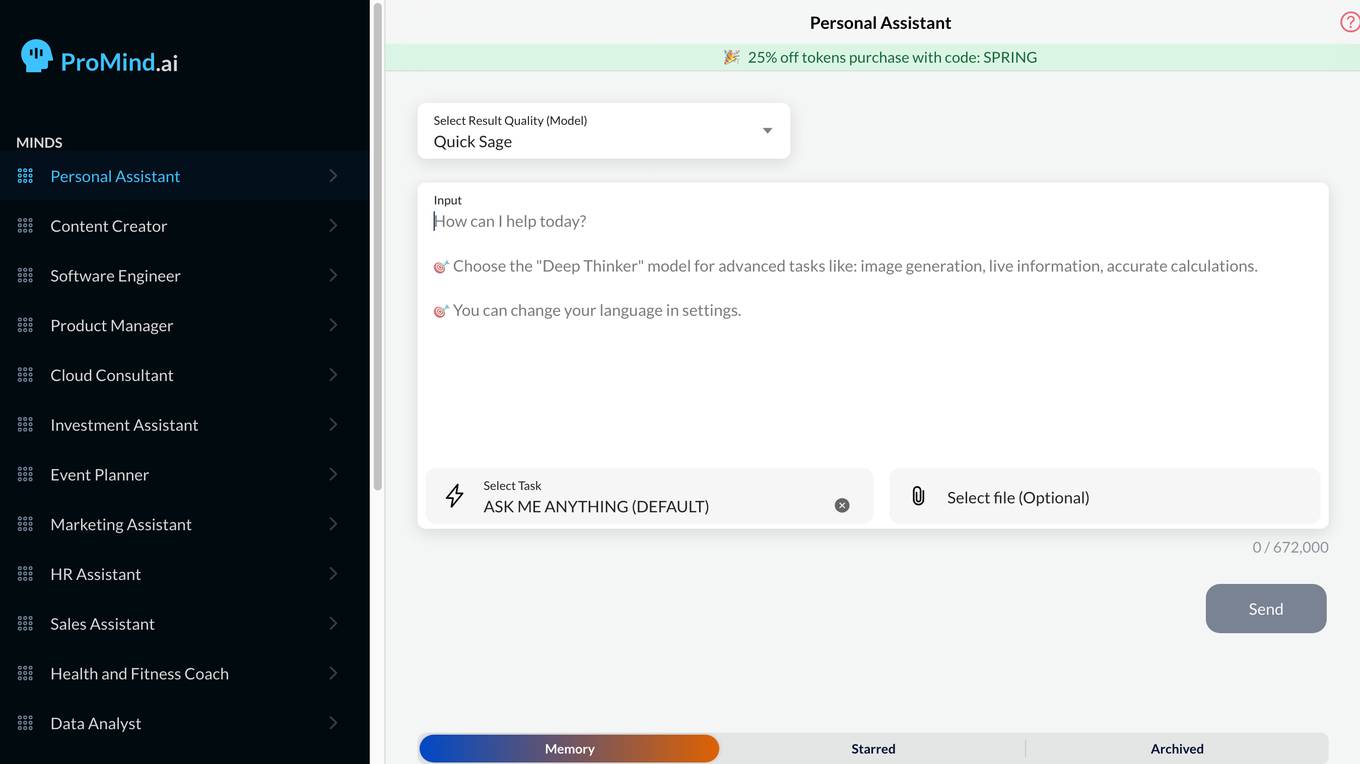
ProMind AI
ProMind AI is an AI-powered tool that helps you generate text, code, and other content. It can be used for a variety of tasks, including writing tweets, creating blog posts, and generating code snippets. ProMind AI is easy to use and can help you save time and effort on your writing projects.
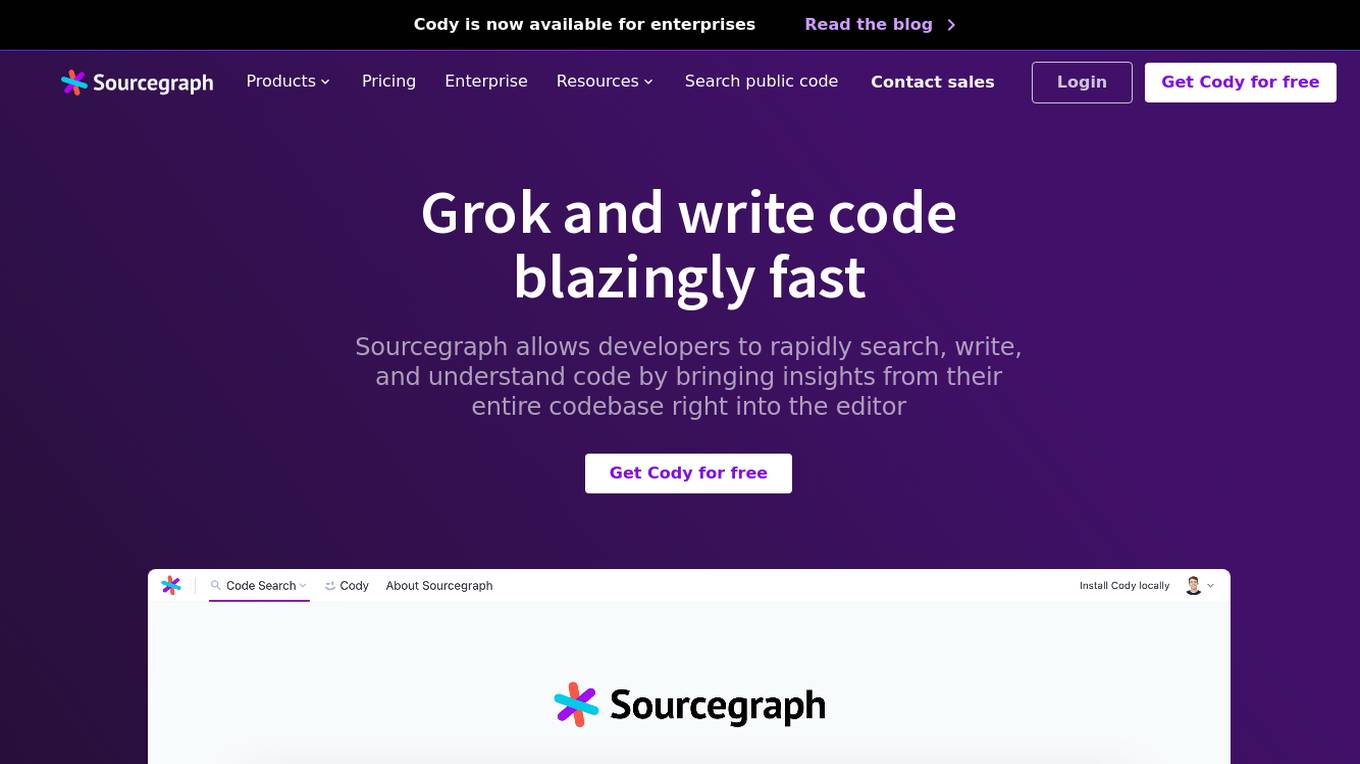
Sourcegraph
Sourcegraph is a code intelligence platform that helps developers write, fix, and maintain code faster. It uses artificial intelligence to understand the code graph and provide insights that help developers focus on writing and shipping code. Sourcegraph is used by over 2.5 million engineers at companies like Google, Amazon, and Microsoft.
1 - Open Source AI Tools
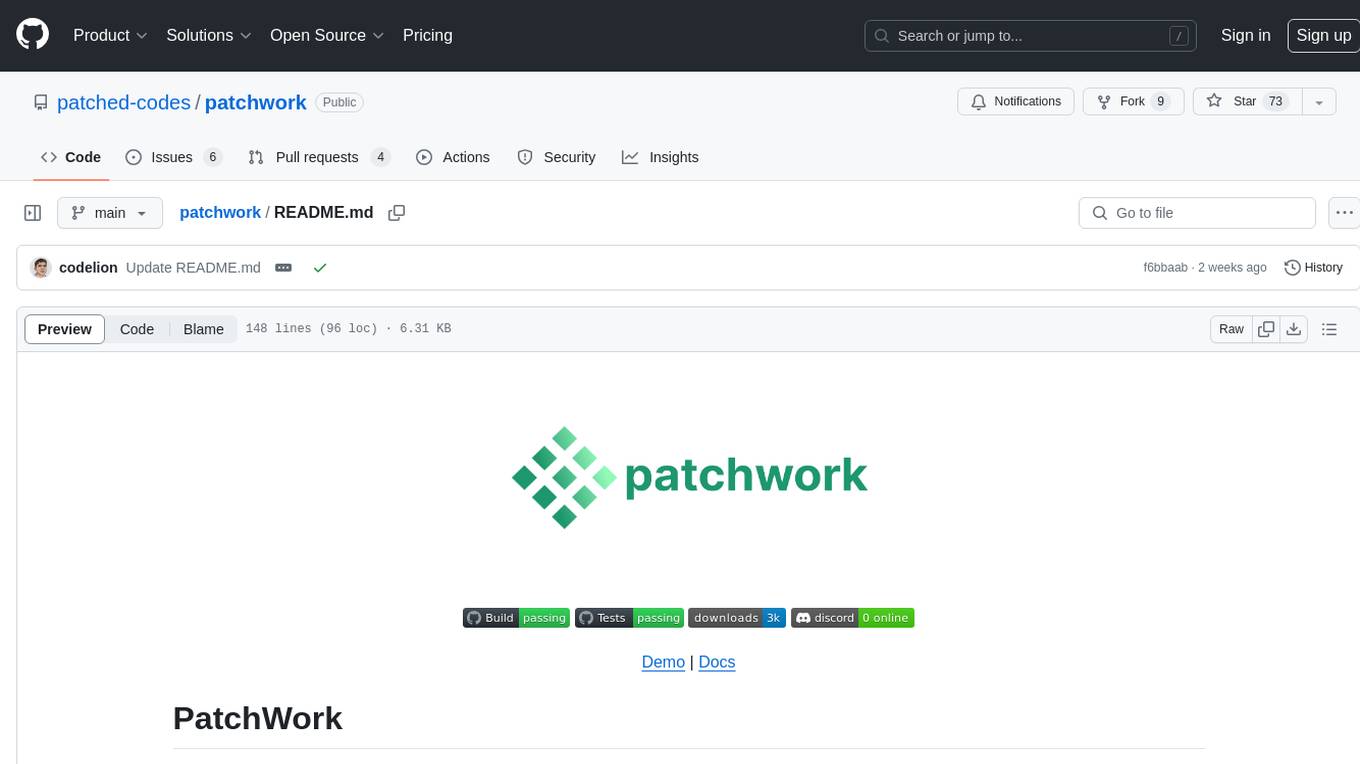
patchwork
PatchWork is an open-source framework designed for automating development tasks using large language models. It enables users to automate workflows such as PR reviews, bug fixing, security patching, and more through a self-hosted CLI agent and preferred LLMs. The framework consists of reusable atomic actions called Steps, customizable LLM prompts known as Prompt Templates, and LLM-assisted automations called Patchflows. Users can run Patchflows locally in their CLI/IDE or as part of CI/CD pipelines. PatchWork offers predefined patchflows like AutoFix, PRReview, GenerateREADME, DependencyUpgrade, and ResolveIssue, with the flexibility to create custom patchflows. Prompt templates are used to pass queries to LLMs and can be customized. Contributions to new patchflows, steps, and the core framework are encouraged, with chat assistants available to aid in the process. The roadmap includes expanding the patchflow library, introducing a debugger and validation module, supporting large-scale code embeddings, parallelization, fine-tuned models, and an open-source GUI. PatchWork is licensed under AGPL-3.0 terms, while custom patchflows and steps can be shared using the Apache-2.0 licensed patchwork template repository.
20 - OpenAI Gpts
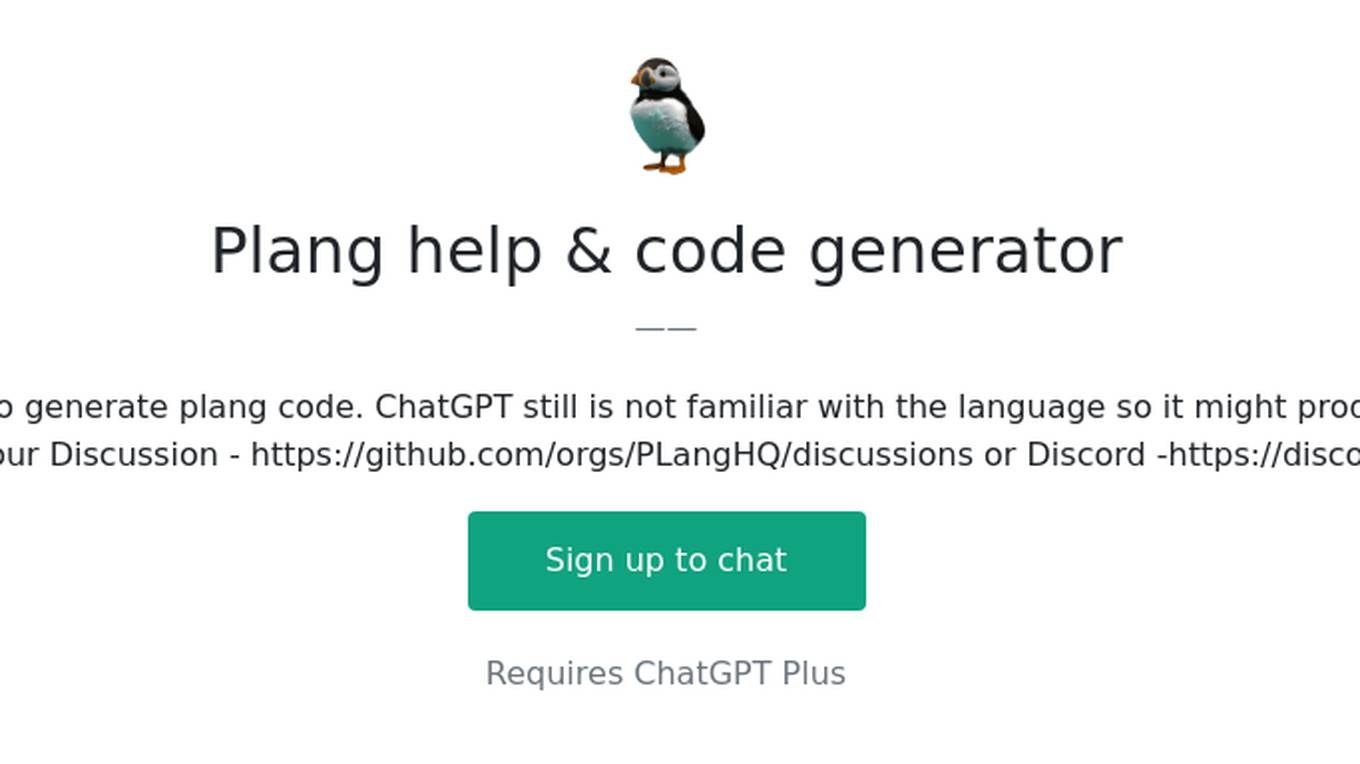
Plang help & code generator
Help you understand what plang is and to generate plang code. ChatGPT still is not familiar with the language so it might produce wrong code. It should be simple to fix, for help come to our Discussion - https://github.com/orgs/PLangHQ/discussions or Discord -https://discord.gg/A8kYUymsDD
Golang Code Review and Example Buddy
Provides in-depth Golang code reviews, explanations, and fixes.

AlphaMan.ai - Code therapy: Fix yourself and code
Fix yourself, rebuild and challenge yourself with code, unleash your inner beast!
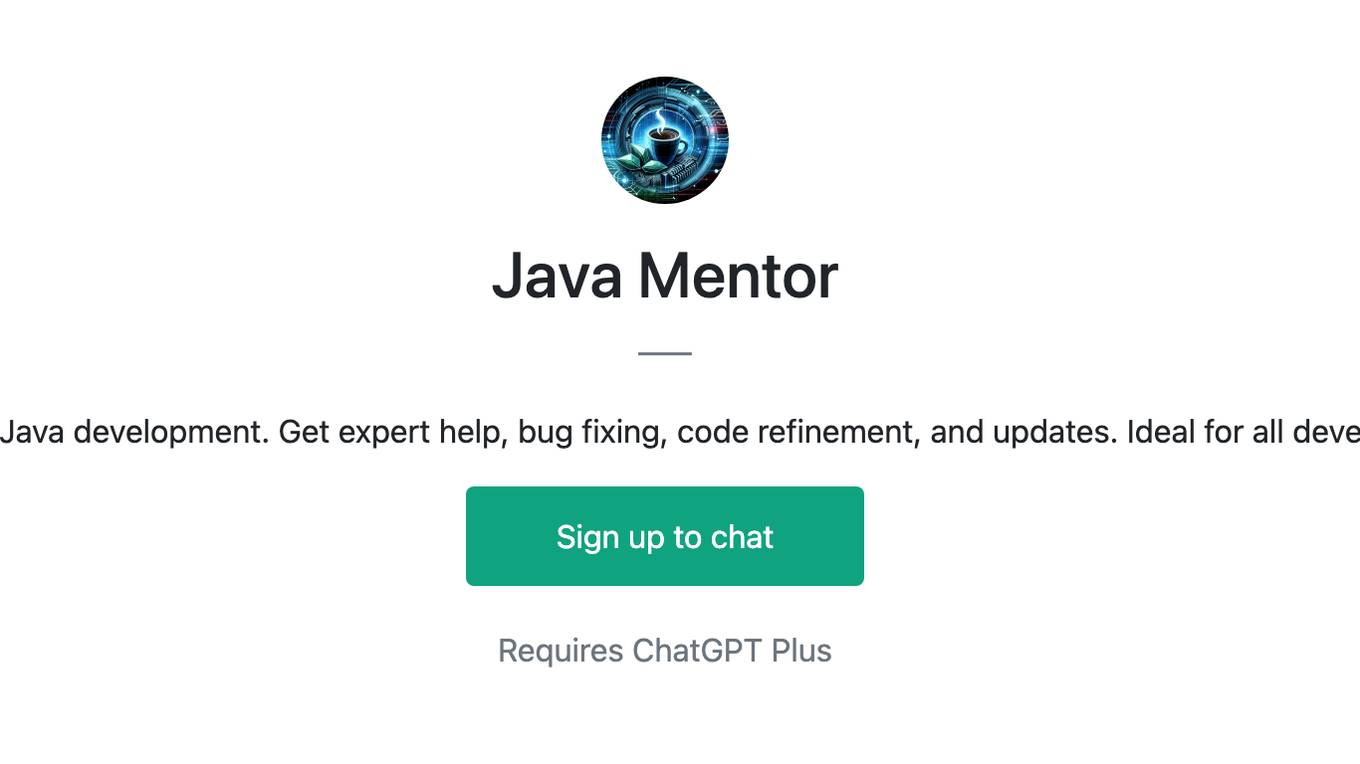
Java Mentor
Java Mentor: AI-driven assistance for Java development. Get expert help, bug fixing, code refinement, and updates. Ideal for all developer levels, making coding simpler.
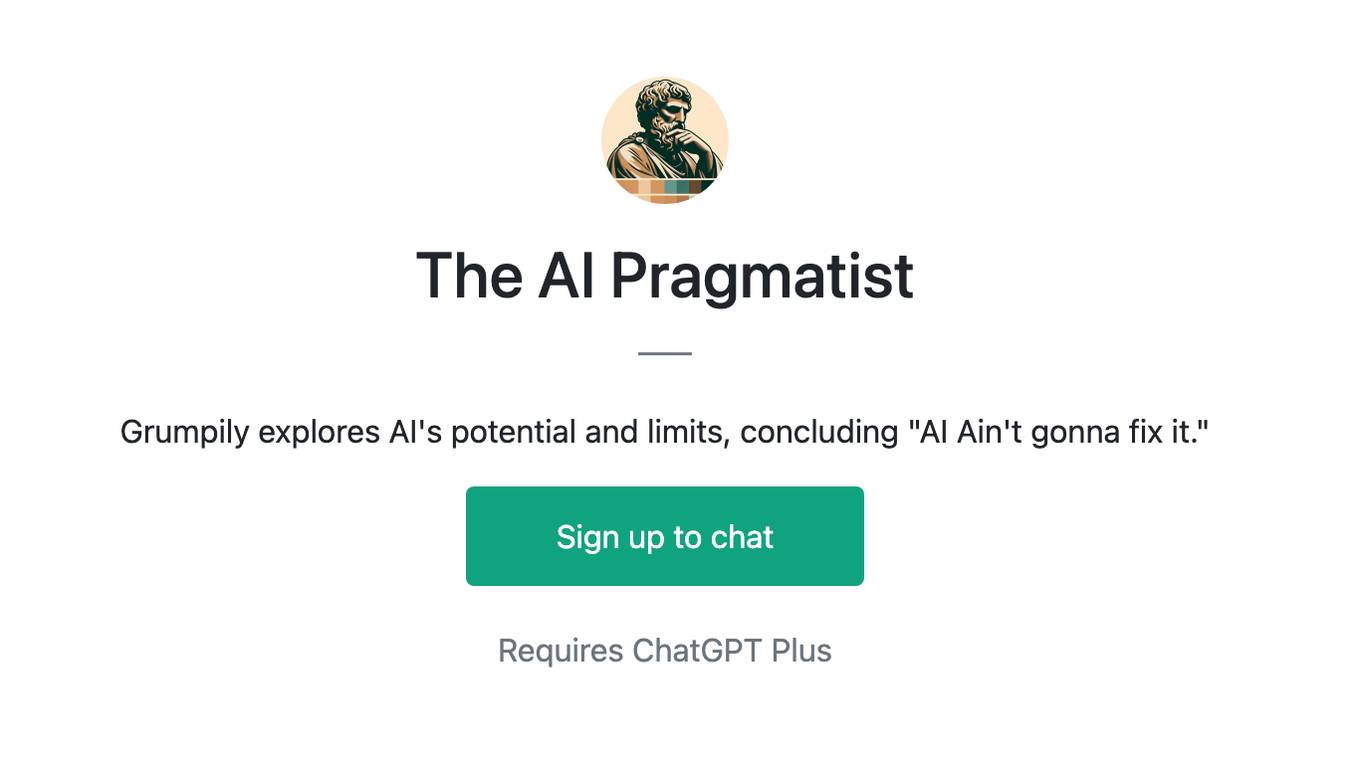
The AI Pragmatist
Grumpily explores AI's potential and limits, concluding "AI Ain't gonna fix it."

